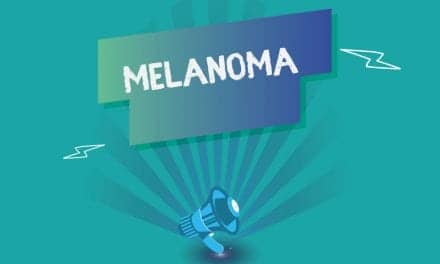The Dermatology Nurses Association (DNA) has joined nearly 100 state and national medical associations including the American Academy of Dermatology (AAD) and the American Medical Association (AMA) in signing a letter of opposition to Rep. Michael Grimm (R-NY), who co-sponsored legislation to repeal the 10% tax on indoor tanning services.
The American Academy of Dermatology Association (Academy) opposes recent legislation to repeal the federal 10 percent indoor tanning tax. Countless scientific studies continue to demonstrate clear and compelling evidence that tanning bed use increases the risk of developing all forms of skin cancer. Tomorrow, July 1, is the one-year anniversary of the tax that addresses the serious public health risks associated with indoor tanning.
"The indoor tanning tax sends a clear message to Americans, especially young people, that tanning is a dangerous activity and that a tan is not a sign of good health," says Ronald L. Moy, MD, FAAD, president of the AAD. "As the medical doctors who treat more than 3.5 million cases of skin cancer in America every year, dermatologists are focused on increasing awareness of and protecting the public from the known skin cancer risks associated with UV radiation from indoor tanning."
However, in recent weeks, there have been two bills introduced in the US House and Senate to repeal the tax on tanning bed services. "The Academy is disappointed that the proposed repeal legislation ignores the serious public health impact of indoor tanning and the dramatic rise of skin cancer in young women," said Dr. Moy.
Indoor tanning is associated with a 75% increase in the risk of melanoma, the deadliest form of skin cancer. Melanoma incidence rates have been increasing for at least 30 years and melanoma is increasing faster in young women (15-29 years old) than in young men in the same age group — and a major difference in behavior is that women are more likely to use indoor tanning beds.
“Studies show clear evidence that tanning bed use increases the risk of developing all forms of skin cancer, including melanoma, the deadliest form of skin cancer,” says DNA President-Elect, Trudy Adamson, MSN, RN, DNC. “Repealing this tax would be a real disservice to young women – some of whom are literally dying to be tan.”
Like the tobacco tax, the tanning tax appropriately reflects the carcinogenic effects of indoor tanning. As it currently stands, the indoor tanning tax serves as the only policy at the federal level that acts as a deterrent to the harmful behavior and significant health risks of indoor tanning.
"The skin cancer risk inherent in tanning bed use cannot be ignored and similar to the tobacco tax, the indoor tanning tax appropriately reflects the cancer-causing effects of indoor tanning," stated Moy. "It is the hope of the Academy that the current federal tax on this activity remains in place as a deterrent to this harmful behavior."
[Source: American Academy of Dermatology/Dermatology Nurses Association]




